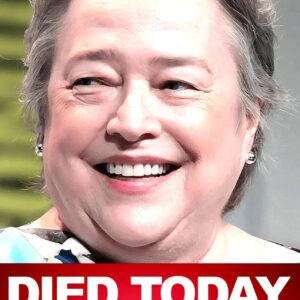Broward Judge Faces Potential Disciplinary Action Over Ethical Violations, Including Improper Donations and Campaign-Related Conduct
Broward County Circuit Judge Stefanie Moon is facing mounting scrutiny and potential disciplinary action after Florida’s Judicial Qualifications Commission (JQC) filed additional misconduct allegations against her, intensifying a case that has already drawn concern from the state’s highest court.
According to newly submitted documents, the JQC alleges that Judge Moon violated Florida’s Code of Judicial Conduct by contributing more than $2,000 to political campaigns—a clear breach of the nonpartisan expectations for members of the judiciary. The contributions, which totaled $2,115, were reportedly made to several prominent political campaigns and organizations. Florida law strictly prohibits judges from making political donations, as such actions may compromise or appear to compromise judicial impartiality.
The JQC’s findings have led to a recommended punishment consisting of a public reprimand and a fine equal to the value of the donations. Judge Moon has agreed to this proposed sanction, though the final decision will rest with the Florida Supreme Court, which has the sole authority to impose discipline on sitting judges in the state.
“The Commission believes that a public reprimand and fine will be sufficient to deter similar misconduct by the respondent in the future,” the JQC noted in its filing. “It will also serve as a reminder to future candidates for judicial office that they must protect the integrity of judicial elections by refraining from inappropriate campaign activity and improper political contributions.”
This latest development comes amid ongoing concerns over Judge Moon’s professional behavior during her recent re-election campaign. Earlier this year, the JQC recommended that she be reprimanded for two additional incidents, both related to inappropriate conduct tied to campaign activity.
One of those incidents involved a courtroom interaction in which Judge Moon addressed an attorney during a legal proceeding and questioned why he had not returned her phone call. That call, according to the JQC, had been placed outside of working hours and related to soliciting his assistance with her campaign committee. The attorney, Michael Jones, later reported feeling “extremely uncomfortable,” noting that he supported her opponent during the election.
The JQC strongly criticized the judge’s conduct in this scenario, citing the “inherently coercive nature” of a sitting judge confronting a lawyer in open court about political matters. According to the commission, such interactions have the potential to undermine public confidence in a judge’s neutrality and erode trust in the judicial system.
The second reported violation involves Judge Moon allegedly contacting a therapist involved in an active case before her court, raising further questions about boundaries and impartial conduct.
Together, these incidents have prompted the JQC to refer her case to the Florida Supreme Court, which will now determine the appropriate disciplinary response. The Commission’s recommendations reflect its belief that even unintentional ethical missteps by judges can have serious implications for the fairness and integrity of the legal process.
Under Florida’s judicial conduct rules, judges are bound by strict limitations when participating in political activity or seeking re-election. While judges are allowed to establish campaign committees composed of third parties to handle fundraising and endorsements, they are prohibited from personally soliciting donations or engaging in campaign-related activities while performing judicial duties or using judicial resources.
In 2024, Judge Moon was appointed to a three-year term on the Florida Supreme Court Historical Society’s Board of Trustees, an organization committed to preserving the history and role of the judiciary in Florida. Despite this recognition, the recent series of allegations has overshadowed her accomplishments and placed her future on the bench in question.
As the legal process unfolds, Judge Moon’s case has become a high-profile example of how ethical standards are enforced within Florida’s judicial system. It also serves as a warning to other judges and judicial candidates about the importance of maintaining clear boundaries between their official duties and campaign-related activities.
The Florida Supreme Court is expected to review the JQC’s findings and recommendation in the coming months. Until a final decision is made, Judge Moon remains in her position, although the weight of the allegations continues to draw public and professional attention across the state.





